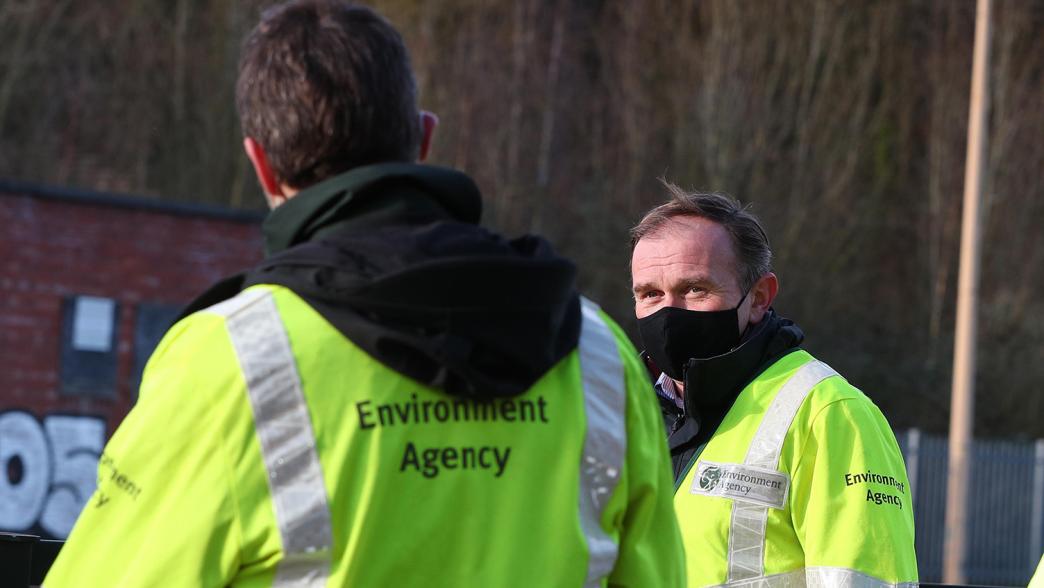
"If you have got good people running an arm’s-length body, then what they will thank you for is clear parameters, clear accountability and not meddling in the day-to-day."
John Penrose, Minister for constitutional reform (2015–16)
What are public bodies?
Among the key figures you will meet in your first few weeks as a minister are likely to be leaders from the public bodies (also called arm’s-length bodies, or ALBs) relevant to your portfolio. Depending on your department, these bodies will have a range of functions: some manage or deliver services on behalf of government, such as the Driver and Vehicle Licensing Agency or the Environment Agency, some act as regulators or advisory bodies, such as the Information Commissioner’s Office, and some will make legal or quasi-legal rulings, like the Pensions Ombudsman.
Public bodies have varying levels of independence from government. This separation can help them to recruit and retain specialist knowledge, and also allows some functions to be conducted at a distance from political influence. Departments that oversee these organisations have a ‘sponsorship’ team of civil servants to liaise between the two, and ministers do not get involved with day-to-day direction. Nevertheless, most bodies receive the majority of their funding from departmental budgets.
Why do public bodies matter?
Delivering policy: Those bodies involved in service delivery will often be on the frontline of any reforms you decide to make, and may be spending a large proportion of your department’s budget. Having a good understanding of how they operate and interact with wider government, and a strong working relationship with their leaders, can therefore be key to making progress on your policy priorities.
Contact with the public: on most occasions that members of the public interact with government, it will be via public bodies. This means that these agencies are a good source of knowledge about how policies are working (or might work) in practice, or about problems those using – or delivering – services are having. Any difficulties with how a public body is working can have a big impact on the public very quickly, so it is important to be aware of what is happening.
The buck stops with you: despite the distance that public bodies have from government as far as day-to-day operations go, they are accountable to ministers and you are ultimately responsible for their work.
"We were responsible to parliament, through parliament to the public for a good performance and budgets of the SFO [Serious Fraud Office], the CPS [Crown Prosecution Service] and also all other public prosecutors."
Edward Garnier, Solicitor general (2010–12)
Working well with public bodies
1. Find out which bodies are in your portfolio, what they do and how they relate to your department
Early on in your time in office, ask your officials to explain which public bodies are in your portfolio, who is responsible for delivering what, and what levers you have to make things happen. Knowing the history of each organisation will help you understand why things are the way they are now. Past reviews of your key public bodies can help you get a sense of their strengths and weaknesses.
2. Build a strong relationship with the chairs and chief executives of your key public bodies
Get to know the heads of the organisations responsible for delivering your policy priorities. Former ministers recommend having regular catch-ups to help you keep up to date with their activities and make sure you are all in the loop on important discussions. This also removes some of the administrative layers that can slow down decisions.
Encourage the leadership to be open with you about challenges they are facing, so you can tackle them together – they will value strong political support for their work. Exactly how much contact you have might vary, depending on how relevant a public body is to policies you are working on, or whether an agency is having difficulties. But if you can build up an open, trusting relationship early on, that will stand you in good stead if serious problems or crises do emerge later. Early warning of problems will help you respond and handle the public and parliamentary messaging.
"I used to make sure that I saw the chairs and chief executives of all those arm’s-lengths bodies every month… once you’ve established trust with them, then you have a much more able relationship as a result."
Hugh Robertson, Minister of state for the Foreign and Commonwealth Office (2013–14)
3. Leverage the expertise of your public bodies
Public body staff are knowledgeable and will have been working on their issue for a long time – often longer and more deeply than your departmental officials. They will also always be keen to talk to you about their work, so ask them questions and learn from them. Be explicit that you want to involve public body leaders in conversations about new policies that might affect their organisations (especially if they will be delivering that new policy), and allow them to offer challenge where relevant.
At the same time, you will want to combine this specific intelligence with your wider political understanding and judgement – public bodies are, by definition, more removed from political debate, so you will need to add that perspective.
4. Set clear expectations but avoid micro-managing
Public bodies are generally expected to deliver on broad objectives set by ministers and in legislation, and might not be as responsive to shorter-term imperatives. You need to set clear expectations of what you want from them, particularly if your priorities differ from those set by previous ministers.
However, it will be impossible for you to have day-to-day oversight of their operations – you just won’t have the time to devote to more routine management, and the leaders of those organisations should have the relevant specialist expertise to do this effectively. Get comfortable with taking a strategic interest in their work, and with asking for more information as and when you need it.
Questions to ask yourself
To ensure that you work well with public bodies, consider the following questions:
- Are you clear on the remit of your public bodies, how they fit in with the wider department and how much control you have over them?
- Do you have all the information you need about how your public bodies are performing, and are they feeding into relevant discussions within the department?
- Is your contact with the leadership in the organisations that are relevant to you of the right frequency?
- Are there any public appointments processes currently running for the boards of your public bodies? Are you up to speed with the status of those processes, and/or are you happy with the candidates with whom you’ve been presented?
Find out more
If you would like to discuss any of the above in more detail, or to talk about potential training we can offer on this topic, please get in touch via ifgacademy@instituteforgovernment.org.uk.
Follow us on Twitter @ifg_academy.
IfG Academy
We help those working in government to improve it, and those outside government to understand and engage with it.
Find out more
- Topic
- Ministers Public bodies
- Position
- Secretary of state Minister of state
- Publisher
- Institute for Government